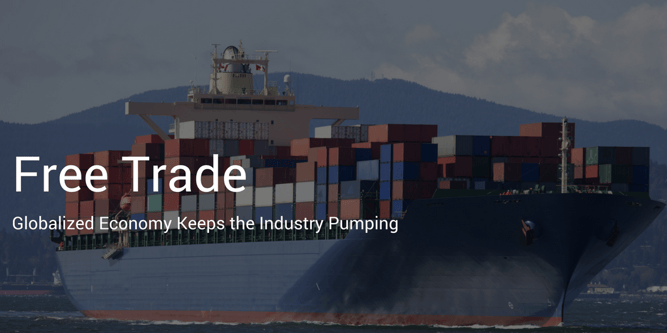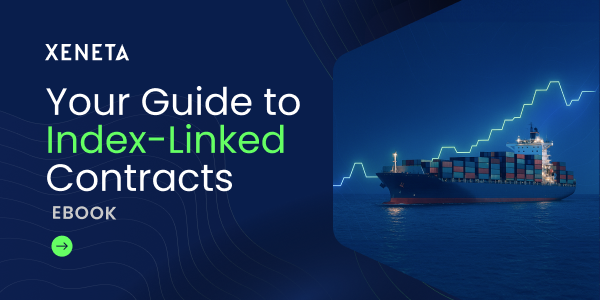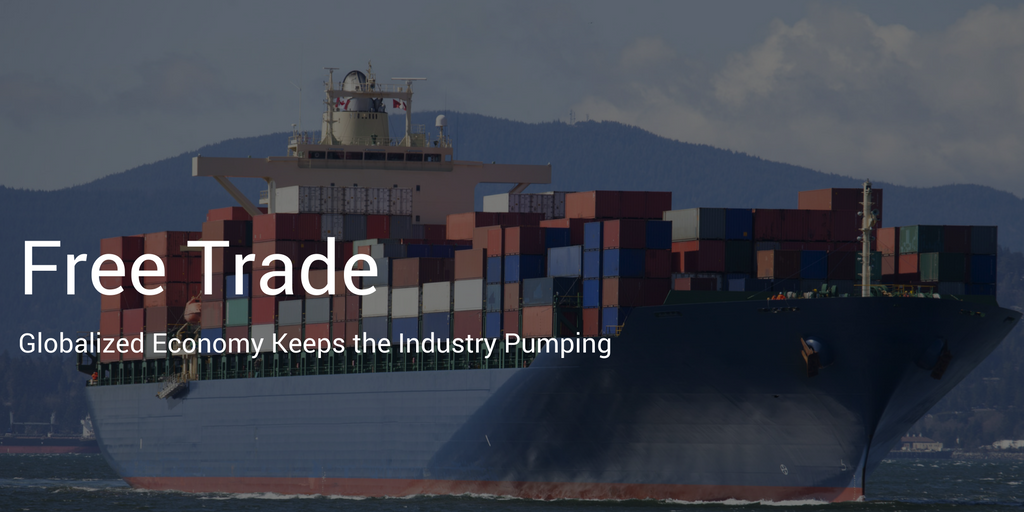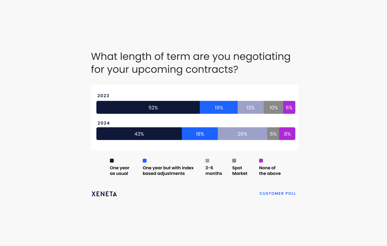
Xeneta is a platform that reports impartially on container rates worldwide. Rising rates? Falling Rates? We make no judgment as to their relative goodness or badness, but instead work very hard to ensure we report accurate rates. But accurate rates are perhaps unnecessary if international trade is curtailed, and seemingly trade may be under siege. This is why free trade is important:
A couple of weeks ago, Walloonia (population 3.6 million) temporarily halted the Comprehensive Economic & Trade Agreement (CETA) between Canada and the EU (population 502 million); only two last-minute side letters from the Belgian Government to the Walloon Assembly enabled the Belgians to provide the unanimous vote necessary for the EU to sign with Canada. One wonders why the removal of some 9,800 tariffs that would facilitate increased sales and lower prices for Canadian / EU consumers and manufacturers is considered negative.
“The pro-free trade people survived to fight another day” said Funk Kierkegaard, of the Peterson Institute for International Economics (Washington, DC). Interestingly and what many want to know is how the recent U.S. election results will affect it all. One of the platforms from the President elect has made trade treaties increasingly unpopular as populist and nativist groups worldwide argue against them.
You Snooze You Lose
“Anti-trade rhetoric is catchy,” said Roberto Azevedo, head of the World Trade Organization (WTO) in a recent Economist .While the US-EU’s Transatlantic Trade & Investment Partnership (TTIP) has stalled as the special interest groups challenge each paragraph, China is taking advantage of America and the EU's absence by pushing its Silk Road Initiative and Asian Infrastructure Investment Bank and offering finance, terms, and projects to ASEAN and Near East countries in order to bind that part of the world together for the long term.
There are calls in the United States to renegotiate NAFTA (North American Free Trade Agreement) in order to favor American manufacturers, and to halt/renegotiate the still unratified Trans Pacific Partnership. But NAFTA has brought a decades-long boom to northern Mexico, where salaries in the auto industry and the Maquiladores (assembly plants in free-trade zones) are 20x higher than those of the agricultural workers and farmers in Central and Southern Mexico and some 60% of America's total exports go to the TPP countries. It seems it would only be positive to maintain those export-related jobs.
The anti-trade forces claim trade causes massive job losses, which is inaccurate. In the United States, while 5.6-6.0 million manufacturing jobs were lost from 2000 – 2010, only 13% were lost to off-shoring – the remaining 5.3 million jobs disappeared entirely. Automation, IT, and technology-change are the culprits; not trade treaties as robotics, virtually free communications, and increased efficiency took those jobs.
No Free Trade is Bad for Carriers
The box carriers are already dangling over the bankruptcy abyss; less than 2 weeks ago the Japanese carriers merged, while mighty Maersk reported a loss of some US $ 118 million. Shipowners Seaspan and Danos are reporting major losses due to the Hanjin bankruptcy, as are Triton and the other container lessors. Should the big banks force the carriers to revalue their ships to current charter rates, the likelihood is every carrier would be declared insolvent. To combine the current low rates with declining box volume if international trade declines, would guarantee the shutdown of most of the carriers, along with subsequent direct and indirect job losses.
Clearly job training for those workers in industries dispossessed by trade treaties must be improved. But trade treaties cannot be negotiated to favor one side over another, and to cancel trade treaties in their entirety threatens to return the world of the 1930's Great Depression. Let's see what is in store as the dust settles and 2017 brings in a new leader of the free world.
.png)







